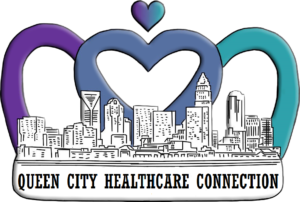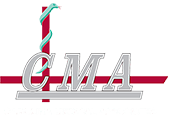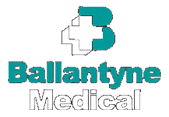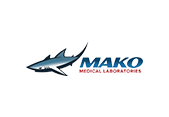Hospital monopoly lawsuit below. A hospital was SUED and LOST, in claims that they violated anti-trust to create a monopoly. That is really what our medical area healthcare structure is like. Once a patient goes to a hospital-based primary care, they are funneled through that system with forced-like health services within that network.
Is Charlotte a FAIR MARKET place for healthcare providers? and are Patients given fair choice of healthcare services?
February 10, 2015
U.S. Appeals Court Affirms Decision to Unwind Merger of St. Luke’s Hospital and Large Medical Group
Orlando Doctors’ Association contributes to ruling that will positively impact all Americans
Winter Park, Fla. — In a striking victory for independent doctors, competition and the future of the nation’s health care, the U.S. Court of Appeals for the Ninth Circuit today ruled that a lower district court was correct when it found the 2012 acquisition of a large medical group by a major hospital system in Idaho violated federal antitrust laws, and ordered the merger to be dissolved.
“This is a case the nation has been watching, because it will have a wide ripple effect,” said Tommy Thomas, a Winter Park CPA, and founding member of the Association of Independent Doctors, an Orlando-based national nonprofit that played a role in the decision.
“Today’s ruling puts hospitals on notice,” Thomas said: “Buying up market share to the point of creating a monopoly in the community is against the law.” He hopes the decision will spur more lawsuits from the FTC seeking to unwind similar hospital-doctor mergers.
The purchase of independent medical groups by hospitals is a national trend.
“Hospitals across the country are buying up medical groups at a rapid pace and turning independent doctors into hospital employees,” said Marni Jameson, executive director for the doctors’ association, which filed an amicus brief last August supporting the lower court’s decision.
Hospitals claim the mergers help integrate care, but analysts say it’s a way for hospitals to capture market share and higher revenues. Studies show such mergers dramatically increase health-care costs.
Because of the leverage hospitals have, they get reimbursed much more than private doctors do for the same procedure, sometimes five to ten times more, said Jameson.
The bigger they get, the greater their bargaining power with insurers. Hospitals can also legally layer in a facility fee. These costs get passed on to patients, and also to consumers and businesses in the way of higher health-care premiums, and to taxpayers who foot the bill for Medicare and Medicaid, she said.
Today’s ruling involves St. Luke’s Health System and its acquisition of Saltzer Medical Group. The Nampa County practice was Idaho’s largest independent medical group before it sold to the hospital system in 2012, for just under $30 million, according to court documents.
St Luke’s claimed that the merger would be better for the patient community as it would help “integrate care” and “enhance efficiencies.”
However, nearby St. Alphonsus Medical Center disagreed and said that the merger created a monopoly that reduced competition, increased costs and was not in the best interest of patients. The purchase gave St. Luke’s 80 percent of the primary care doctors in Nampa and significant bargaining leverage over health insurers, according the Idaho Statesman.
The Federal Trade Commission joined St. Alphonsus and filed suit against St. Luke’s claiming that the merger violated antitrust laws. The U.S. District Court for Idaho agreed and ordered the parties to unwind the merger.
St. Luke’s instead appealed the decision to the Ninth Circuit Court of Appeals.
Shortly after, the Association of Independent Doctors retained Washington law firm Mayer Brown to write an amicus brief affirming the district court’s decision. Robert E. Bloch, an attorney from Mayer Brown who helped write the brief, said, “The association’s brief provided its unique perspective to the Court of Appeals and described the significant challenges independent physicians face. The association’s fight to provide the best, most cost effective care is an important part of this case.”
In addition to AID, four other groups — attorneys general from 16 states, a group of economics professors, America’s Health Insurance Plans, and Catalyst for Payment Reform — also filed amicus briefs asking the Ninth Circuit to affirm the lower court ruling .
In a letter to AID, Idaho Attorney General Lawrence Wasden thanked the Orlando association for its involvement, saying he believed the organization’s brief would have a “persuasive impact” on the appeals court.
Orlando has a vested interest in this ruling, said Thomas. “All Americans, but especially those in Central Florida, have felt firsthand the negative impacts these mergers have on costs, care and communities.”
Central Florida has two of the nation’s largest health systems, which are rapidly buying up medical groups to secure market share.
Florida Hospital and Orlando Health are respectively the No.2 and No.6 largest nonprofit health systems in the country, according to Becker’s Healthcare, which tracks hospital profits. Yet Orlando is only the 26th largest metro. The two systems are also the fourth and 11th highest-grossing nonprofit hospitals, respectively, at $11 billion for Florida Hospital and $7 billion for Orlando health.
“Most metros don’t have one system this big, and Central Florida has two,” said Jameson. “It will be up to the community, and its independent doctors, to keep the systems in check.”
AID, which has members coast to coast, is the only trade association solely representing the interests of independent doctors on the national stage.
# # #
______________________________________________________________________
January 28, 2015, WFAE 90.7 Charlotte, North Carolina
Local Charlotte radio talk radio commentary on the HIGH COST OF HEALTHCARE IN OUR COMMUNITY:




























